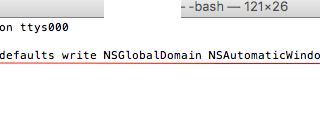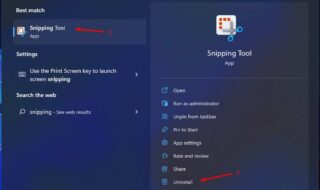Front-end developers contribute to the success of most companies in today’s digital age. So it’s no wonder, the demand for these specialists is ever-growing. The consistently high front end developer salary also attests to the marketability of this career path.
Front-end engineers have immense opportunities for professional growth as well. But how can you join the club? With that said, this post will look under the cover of this career perspective and guide you through the process of becoming a front-end coder.
Contents
Who Is A Web Developer?

Put simply, a front-end coder is a programmer engaged in the development of the user interface, that is, the client-facing part of the website. The main task is to transform the design layout into easily readable and extensible code. In the end, we get a web application or a website that functions quickly and conveniently for the user.
What Are The Main Job Responsibilities?
Most job descriptions feature the same technologies and knowledge for all web developer jobs. Thus, according to the majority of vacancies, the common tasks may include:
- Creating new client-facing functionality;
- Ensuring user experience determines design choices;
- Developing business logic to support the product;
- Designing user interfaces;
- Building cross-browser and adaptive layout HTML5/CSS3;
- Updating applications for increased speed and scalability, etc.
How Much Do Front-End Engineers Make?
Traditionally, web developers are among the most well-paid professionals. Even entry-level positions can range from $60K and $68K per year. After a few years of experience, the US-based workforce can earn up to $84K and $105K. The average senior front-end developer salary is the highest with around $130K of yearly payment.
But the numbers are different based on the location and experience. Western Europe, for example, lowers the bar and offers around $27K per year, while the Dach region pays around $86K per year.
How To Become A Front-End Programmer In 2021
Every career choice has its trials. Similarly, front-end web development is challenging because it is unlike any other language. Thus, it requires a collection of various coding languages and frameworks to get the job done.
Below, you will find a comprehensive plan on how to pave the way for your development career.
- Learn HTML. HTML is the standard markup language that is used to structure a web page and its content. This technology is the most basic building block for the front-end, hence it’s your first step towards a coding path. Other languages besides HTML allow developers to describe a web page’s appearance (CSS) or functionality (JavaScript).
- Learn CSS. Compared to HTML, CSS has a steeper learning curve. CSS defines the website presentation written in a markup language such as HTML. The main reason behind its intricate nature is a browser compatibility nightmare since browser vendors implement CSS specifications differently. We recommend establishing a consistent learning routine that includes a combination of coding books, online courses, and developer communities.
- Learn JavaScript. Last but not least is the profound knowledge of JavaScript. This programming language can be used both on the front- and the back-end. While CSS and HTML are responsible for the structure and style of the web pages, JavaScript adds interactive elements that grasp the user. To get the knack of it, start with JavaScript tutorials, free resources, and official documentation. After you get to grips with the basics, move on to simple JS projects available on the Internet.
- Proceed with Node.js
Pure HTML, CSS, and Javascript are not enough to market yourself as a skilled developer. Hence, you’ll also need to get a solid grasp of Javascript libraries. Learning a popular library like Node JS will help you easily build fast and scalable network applications.
- Get acquainted with other JavaScript Frameworks
Additionally, you might also want to get exposed to other widely used JS frameworks. These include Vue.js, React, and Angular. Each of them is used to perform a different function. The main benefit is that all of them allow you to reduce the time spent on routine tasks.
- Get an idea of DOM manipulation
DOM manipulation is among the most useful knowledge fields when it comes to writing JavaScript for browsers. It allows you to manipulate, structure, and style your website. Its capabilities range from adding an animation to creating customizable applications.
- Get grounded in AJAX.
After that, combine your knowledge to master Asynchronous JavaScript And XML. It’s a set of front-end techniques used to build better, faster, and more interactive web applications. Its main selling point lies in the ability to run web applications asynchronously.
- Build a common understanding of databases
Data is omnipresent even in the front-end niche. General knowledge of SQL and NoSQL will give traction to your career. Besides, all web developers worth their salt should be able to write an SQL query to load data.
- Build your portfolio.
Finally, reinforce your knowledge by building simple projects to include in your portfolio. You can create a clone website or contribute to GitHub and FOSS.
The Final Word
As much as it may seem, all those skills do not equate to front-end development. In reality, the front-end puzzle is made up of other broad areas like performance, testing, QA, and others. Therefore, becoming a web engineer equals being a deep diver and hard learner.
Bio
Dariia Herasymova is a Recruitment Team Lead at Devox Software. She hires software development teams for startups, small businesses, and enterprises. She carries out a full cycle of recruitment; creates job descriptions based on talks with clients, searches and interviews candidates, and onboards the newcomers. Dariia knows how to build HR and recruitment processes from scratch. She strives to find a person with appropriate technical and soft skills who will share the company’s values. When she has free time, she writes articles on various outsourcing models for our blog.



